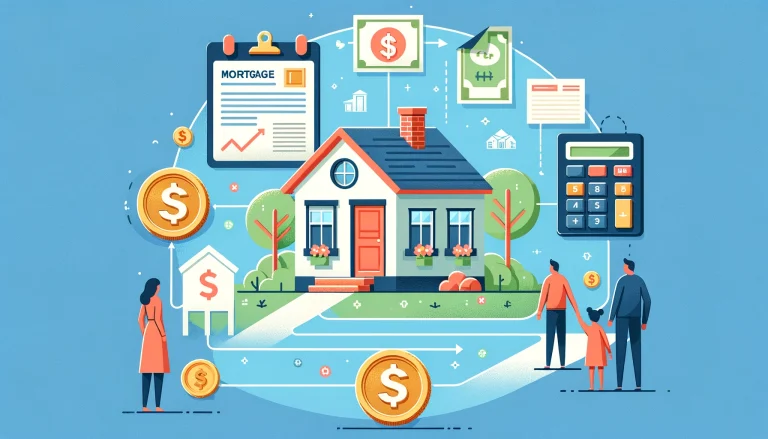Those struggling with debt have many options to save their financial situations. Some of the typical choices are credit advocating, debt merging, and cash-out reinvesting. For those with serious financial problems, there’s debt resolution and, unfortunately, even bankruptcy.
You may know them by different names, but they are all possible ways to get out of debt.
Debt Alternatives
In order to facilitate paying off your debts, you may use the methods below. Some of these employ the help of private companies and government institutions.
Don’t hesitate to ask for their assistance, as your personal finances are at stake. Make sure to understand all your options thoroughly, even for do-it-yourself strategies.
Credit Advocating

Also known as credit counseling, it’s a debt solution that provides short-term and long-term relief. It’s provided by companies that assign credit counselors to their clients. The two will discuss a plan on how to save the client’s finances. It will involve short-term measures that are meant to fix their long-term financial situation.
Credit advocating starts by scheduling a counseling session. You must bring the required documents along to that meeting, especially your credit report. You will discuss your money troubles while going over your financial records.
The representative will teach you how to properly manage your money, and may even formulate a debt management plan if necessary.
If you’re seriously struggling with debt, the counselor will give you a debt management program. It’s mainly a modification of your existing payment plan that may help you get out of debt. It will have lower monthly payments that may take three to five years to complete.
Once your lenders accept your DMP, you must comply with all its terms and conditions.
The best characteristic of credit counseling is it’s potential to fix your credit score. Not only will the DMP facilitate debt payoff, but your timely payments for it may also improve your credit too. Another is the included financial education you will get. You may attend your credit counseling agency’s finance lessons, or grab a copy of their educational material.
Of course, the program might still fail depending on a variety of factors. Your lender may not approve of your debt management plan, too.
Moreover, credit counseling only applies to unsecured debts like credit card debt and student loans. If you need help with secured ones like car loans, you may want to look for other options.
Merging Debt

Otherwise known as debt consolidation, it is combining your debts into one then paying them all off with a lump sum. This is usually done with specialized personal loans with lower interest rates. After your debt consolidation loan, you will have to complete payments on it.
This whole process is meant to simplify your debt payoff by replacing multiple balances with just one.
If you’re struggling with debt, you may also consolidate with balance transfer credit cards. The merged sum will be on those cards that usually have 0% APR for at least 18 months.
This can help you get out of debt faster since you can easily concentrate on your payments directly to your balances. However, you must consistently pay on time, as you’ll receive interest rates after the no APR period.
Just like credit advocating, merging debt is reserved for unsecured balances, so it’s typically used for credit card debts. Also, its success lies in your spending habits. If you tend to splurge and borrow money, lumping all your debts into one won’t work. Debt consolidation only eases your debt payoff, but you must still commit to the program.
Reinvesting Cash Out
If you own a home, you may consider reinvesting cash-out to reduce your debts. Also referred to as cash-out refinancing, it involves using a loan larger than your existing mortgage. That loan will include the amount you still owed plus a maximum of 80% of your home equity. Your equity is your home’s current value minus part of the mortgage you’ve already paid.
That loan will completely pay off your mortgage and provide you the remaining amount. For example, your mortgage is $100,000 and you’ve already paid $60,000. Your home equity is $40,000, so you may use 80% of it or $32,000.
By cash-out refinancing, you may borrow $72,000 to pay the remaining $40,000 and get $32,000 for other purposes.
Cash-out refinancing has various benefits for those struggling with debt. It may you earn good credit, and it may also be used for debt consolidation. Depending on market conditions, refinancing may have lower interest rates as well. It can even be written off as a tax-deductible, helping you get out of debt in many ways.
Be absolutely sure before refinancing, as you may lose your home because of it. Fail to make timely payments, and your home will be foreclosed. You might even get loan terms from cash-out refi that are worse than your previous mortgage conditions. Read and understand all the agreements before proceeding, and find other options first.
Debt Resolution

Debt resolution or debt settlement reduces the amount you owe to your creditors. You’ll discuss your finances with a company representative, similar to credit counseling. Then, the company will negotiate with your lenders to reduce your debts.
While waiting, you must refrain from paying your creditors, and divert your payments to an escrow account instead.
After several months, you might be granted debt relief, then you must agree to the negotiated offer. Next, your funds in escrow will be used to pay that smaller amount. Lastly, you must pay your debt settlement company their required fees. You may have to pay upwards of 20% of the amount removed, and another percentage for taxes.
Overall, only those who are severely struggling with debt resort to settlement due to the potential risks. Aside from potentially paying more for service and tax, it substantially damages your credit too.
As with DMPs, debt settlements may be refused by creditors, so you may be left with humongous deferred payments. Simply, you might find it harder to get out of debt.
Bankruptcy

Most people know bankruptcy as the absolute last resort for managing debts. Individuals may opt for Chapter 7 or 13, whereas companies may choose Chapter 11. Regardless of your chosen bankruptcy type, the process is lengthy and excruciating. You may have to surrender your possessions as repayment, and you will scar your credit report for at least a decade.
People may choose either Chapter 7 and 13 bankruptcy to salvage their finances. The former is known as a “liquidation bankruptcy,” where your assets are used to pay off your debts. On the other hand, Chapter 13 or the “wage earner’s plan” involves following a plan to help you earn repayment.
As for businesses, they may declare for Chapter 11 bankruptcy. Individuals may also do it, but only under specific conditions. Nevertheless, it can be highly intrusive as your company will be thoroughly scrutinized. After the analysis, parts of it may be reduced, so you can earn repayment.
No matter which bankruptcy type applies, you must seek legal counsel before proceeding. An attorney will be able to properly guide you through it. The professional may even recommend other ways to get out of debt.
Anticipate for the severe impact that will last for years. Truly, it’s a last-ditch attempt for those struggling with debt.
DIY Debt Strategies
If your finances aren’t as dire, you may follow do-it-yourself methods instead. You may use the common ones: debt snowball and avalanche. Both involve paying balances one-by-one while keeping minimum payments on others. However, the snowball method prioritizes the smallest debts, while the avalanche technique starts with the largest.
The snowball may provide slower payoff compared to the avalanche. Most people commit to it longer though, since paying small debts spurs them to trudge on. On the other hand, it’s harder to save up for bigger debts in accordance with the avalanche method. With enough determination, you might pay your debts faster though.
Money Habits: The Best Debt Solution
Nevertheless, the best way to become debt-free is proper money management. Write a budget plan in order to minimize expenditure.
Doing so will help you save money, so you have money to pay your debts off. Allocate extra cash to an emergency fund, so you avoid borrowing money for urgent situations.












